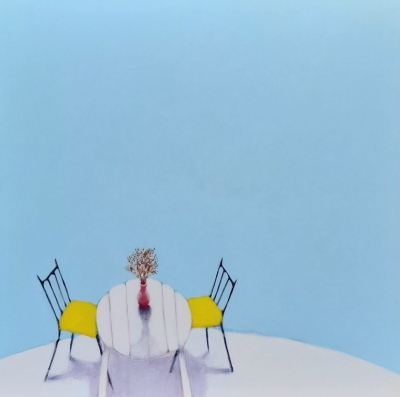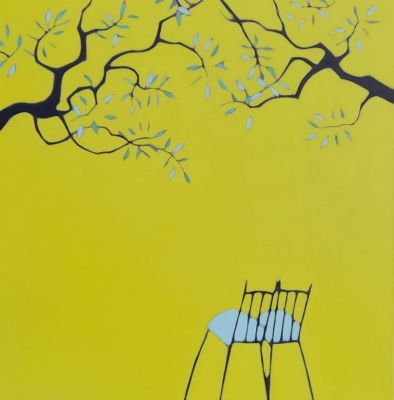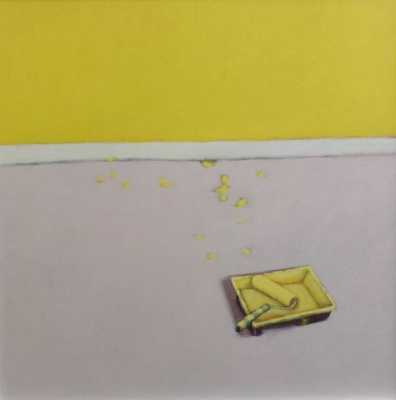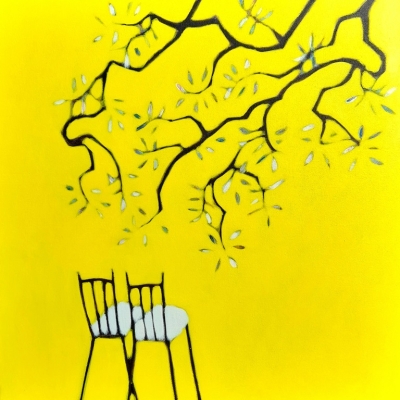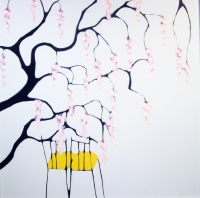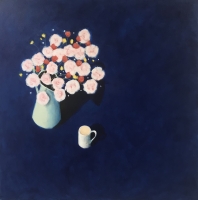Artist Profile - Beth Richardson
Settle
Medium: Acrylic on Canvas
Measurements: 150 x 150cm framed
Price: Please enquire
Float
Medium: acrylic on canvas
Measurements: 105 x 105cm
Price: Please enquire
Sky
Medium: Acrylic on Canvas
Measurements: 126 x 126cm Framed
Price: Please enquire
Pond
Medium: acrylic on canvas
Measurements: 105 x 105cm
Price: Please enquire
Folded
Medium: Acrylic on Canvas
Measurements: 105 x 105cm framed
Price: Please enquire
Fly
Medium: acrylic on canvas
Measurements: 105 x 105 cm framed
Price: Please enquire
Scent
Medium: Acrylic on Canvas
Measurements: 128 x 128cm Framed
Price: Please enquire
Rest
Medium: Acrylic on Canvas
Measurements: 58 x 58cm
Price: Please enquire
Witness
Medium: Acrylic on Canvas
Measurements: 125 x 125cm framed
Price: Please enquire
Wild
Medium: acrylic on canvas
Measurements: 85 x 85 cm framed
Price: Please enquire
Live
Medium: acrylic on canvas
Measurements: 125 x 125 cm framed
Price: Please enquire
Tulips
Medium: acrylic on canvas
Measurements: 155 x 155 cm framed
Price: Please enquire
Find
Medium: Acrylic on Canvas
Measurements: 155 x 155cm Framed
Price: Please enquire
Scent
Medium: acrylic on canvas
Measurements: 105 x 105cm framed
Price: Please enquire
Soaking
Medium: Acrylic on Canvas
Measurements: 127 x 127cm Framed
Price: Please enquire
Spill
Medium: acrylic on canvas
Measurements: 84 x 84 cm framed
Price: Please enquire
Lift
Medium: acrylic on board
Measurements: 35 x 35 cm framed
Price: Please enquire
Scrub
Medium: Acrylic on Canvas
Measurements: 128 x 128cm Framed
Price: Please enquire
Bow
Medium: Acrylic on Canvas
Measurements: 125 x 125cm framed
Price: Please enquire
Wise
Medium: acrylic on canvas
Measurements: 128 x 128 cm framed
Price: Please enquire
Cover
Medium: Acrylic on Canvas
Measurements: 84 x 84cm Framed
Price: Please enquire
Quiet
Medium: acrylic on canvas
Measurements: 85 x 85cm
Price: Please enquire
Peonies
Medium: acrylic on canvas
Measurements: 128 x 128 cm framed
Price: Please enquire
Painting
Medium: acrylic on canvas
Measurements: 155 x 155 cm framed
Price: Please enquire
Shine
Medium: acrylic on canvas
Measurements: 82 x 82 cm framed
Price: Please enquire
Fly
Medium: acrylic on canvas
Measurements: 105 x 105 cm framed
Price: Please enquire
Sunny
Medium: Acrylic on Canvas
Measurements: 128 x 128cm Framed
Price: Please enquire
Ride
Medium: acrylic on canvas
Measurements: 145 x 145 cm unframed
Price: Please enquire
Line
Medium: Acrylic on Canvas
Measurements: 105 x 105cm framed
Price: Please enquire
Change
Medium: Acrylic on Canvas
Measurements: 105 x 105
Price: Please enquire
Covered
Medium: Acrylic on Canvas
Measurements: 128 x 128cm Framed
Price: Please enquire
Silver
Medium: Acrylic on Canvas
Measurements: 128 x 128cm Framed
Price: Please enquire
Settle
Medium: Acrylic on Canvas
Measurements: 150 x 150cm framed
Year:
Price: Please enquire
Click for larger image...
Biography
Beth Richardson graduated from the University of Gloucestershire UK with First Class BA (Hons) degree in Painting and Drawing and won the Hans Brinker Award in 2009. Since then she has been a practising artist, working for much of that time in Portugal until her return to Cornwall in 2020. Beth has been represented by Greenstage Gallery since she finished her degree. Her work is in collections all over the world and she regularly exhibits in the UK, Europe, Asia and the USA.
Beth is best known for her large, colourful canvases depicting ordinary objects in largely empty spaces. Her work incorporates paintings and sculptures made in response to the nature and physicality of distinctive, found everyday objects that have ceased to function in their normal way. She is particularly drawn to objects which have a strong visual history and human connotations such as chairs, jugs and baths. Her paintings explore these objects strangely human characteristics, both alone and in relation to each other with the use of ambiguous compositions and skewed perspectives.
Beth's preferred medium is acrylic on canvas. She creates large fields of flat/solid complimentary colours by building up layers of paint, often painting subject matter out until she is happy with the composition.
She cites Giorgio Morandi, Craig Aitchison, Mark Rothko, Barnett Newman and Rachel Whiteread among her artistic influences. It is possible to see where she has drawn inspiration from these artists, but the development in her work is mainly autobiographical, reflecting events in her life.
Artist Statement
“I paint ordinary, everyday objects in large empty spaces and explore the strangely human characteristics the objects reveal both alone and in relation to each other. Compositions are often ambiguous as perspectives are skewed, horizons become tables and domestic interiors merge with the wild natural world. As our perspective is challenged we are tempted to forget what we know and respond to the ordinary in a new way."










